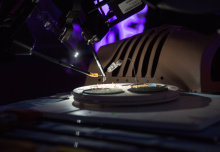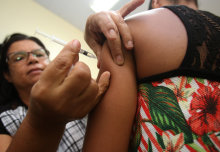

MedTech accelerator
£5m grant to kickstart pioneering MedTech accelerator led by Imperial
An Imperial-led project to rapidly translate new medical technologies into clinical solutions has received £5m government funding.



£5m grant to kickstart pioneering MedTech accelerator led by Imperial
An Imperial-led project to rapidly translate new medical technologies into clinical solutions has received £5m government funding.


Cambridge Analytica is “only the beginning”: Imperial data expert weighs in
Dr Yves-Alexandre de Montjoye has warned of the risk of privacy attacks that happen through friends.


Global carbon emissions could be cut 3% by following the UK’s example
The UK cut its emissions from electricity production by 25% in 2016, using a strategy many countries could adopt to quickly lower carbon emissions.
 3
3


Collaboration could help botanic compound tackle breast cancer and stroke
Researchers at Imperial are teaming up with a company testing a synthetic version of the compound sulforaphane, to see if they can expand its use.
 1
1


Innovative finger prick test could improve maternal healthcare across the globe
A social enterprise that aims to bring vital prenatal care to isolated regions has won the Venture Catalyst Challenge.


Video
10 years measuring membranes at the Diamond Light Source
Dr Konstantinos Beis’ work at the particle accelerator looks at cell membranes to identify new drug targets and tackle drug resistance.


World’s first continuous room-temperature solid-state maser built using diamond
The breakthrough means masers - the microwave version of lasers - could now be used more widely in a range of applications.
 1
1


Experts reveal patterns of yellow fever risk, and warn against ignoring disease
Yellow fever kills around 80,000 people every year - and causes severe disease in a further 150,000.
 1
1


Artificial and biological cells work together as mini chemical factories
Researchers have fused living and non-living cells for the first time in a way that allows them to work together, paving the way for new applications.


Feature
Feed or flee: the brain cells that tell us when to eat and when to run away
Feeling peckish? Eating may be taken for granted as a fundamental part of life, but getting it wrong can have serious consequences for our health.